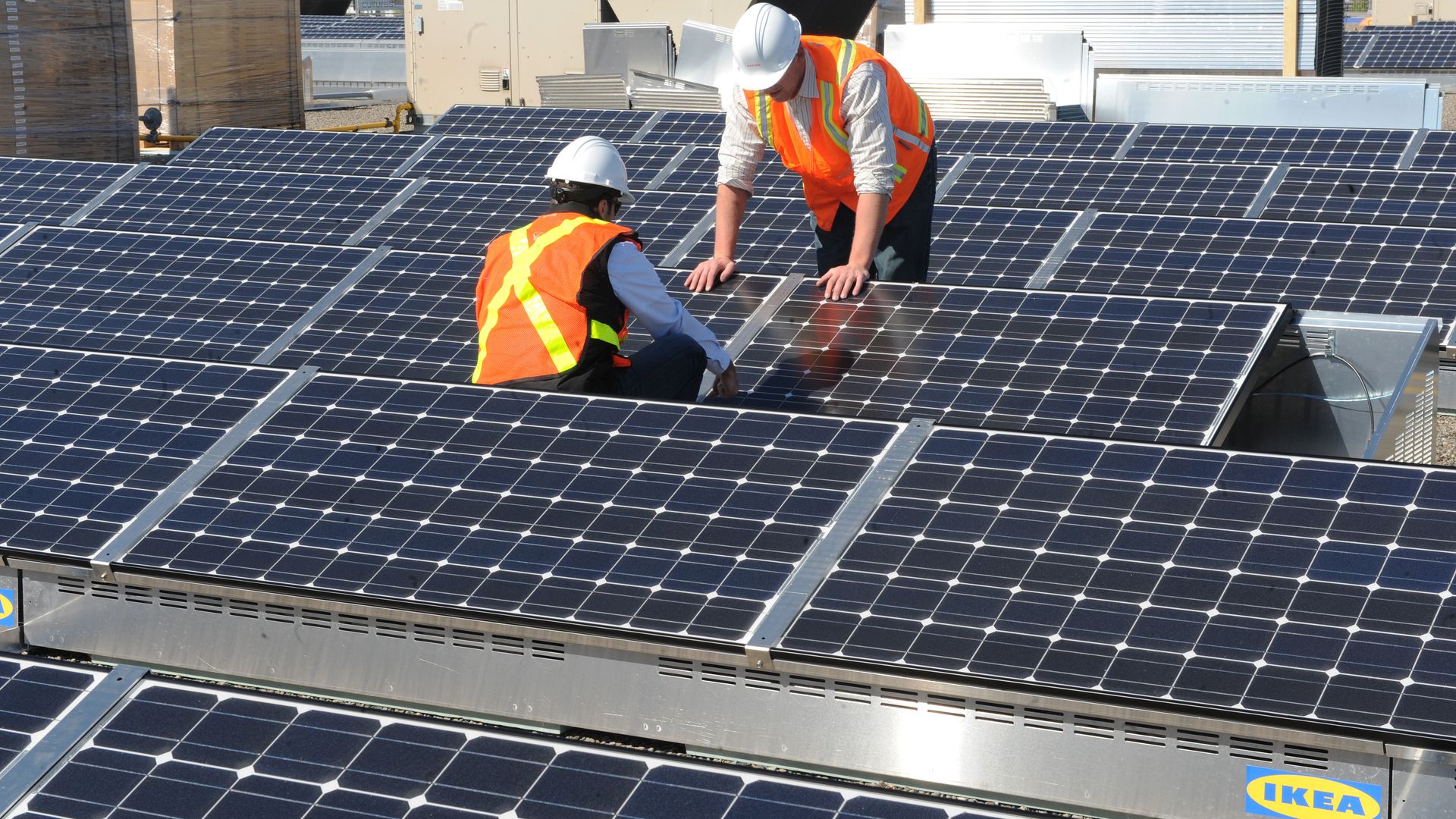Jun 13, 2018 - Energy & Climate
Expert VoicesAs U.S. looks to coal, Canada sets sights on renewables
Add Axios as your preferred source to
see more of our stories on Google.

Workers install solar panels on the roof of an Ikea near Toronto. Photo: Colin McConnell/Toronto Star via Getty Images
